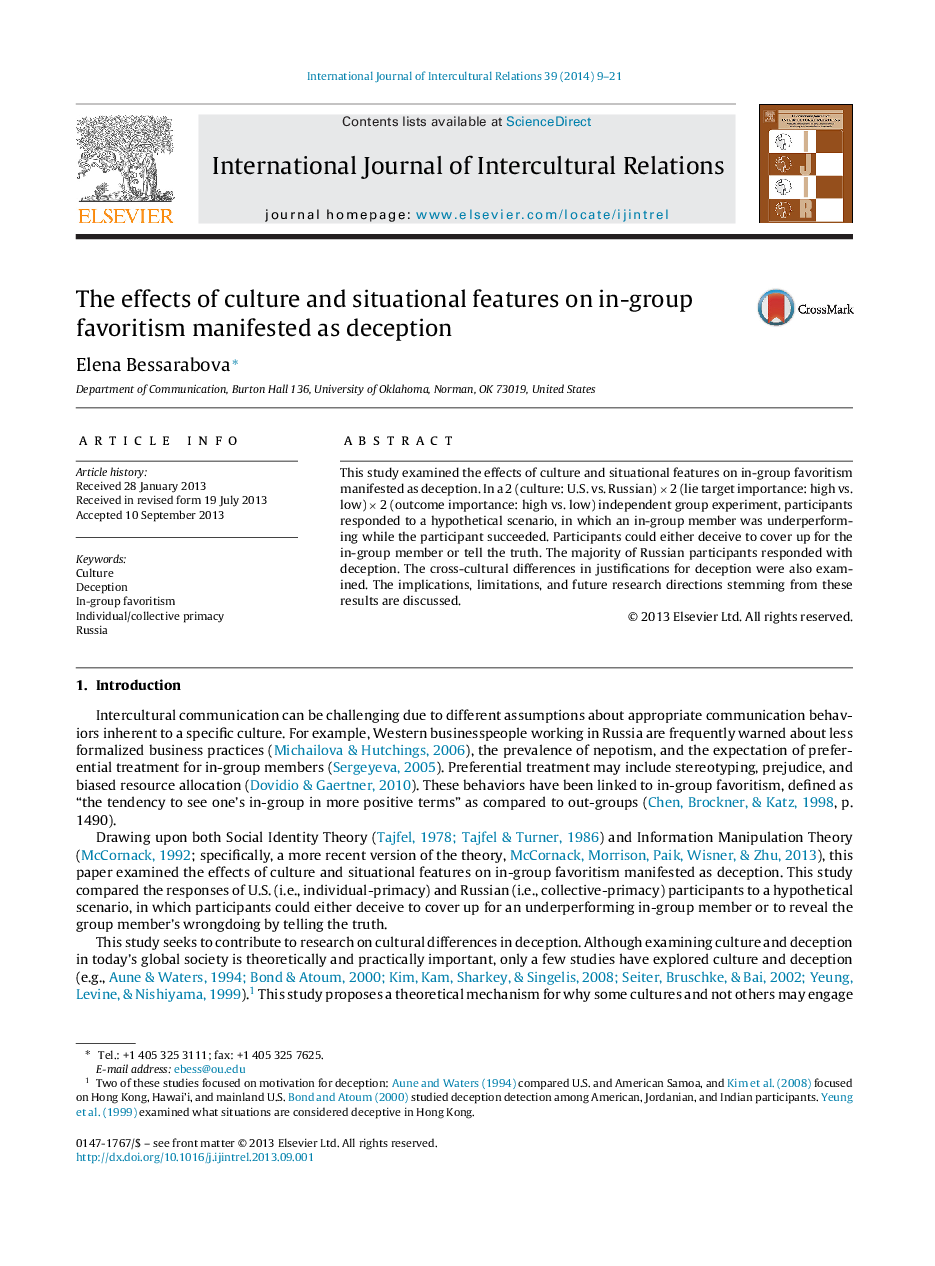| کد مقاله | کد نشریه | سال انتشار | مقاله انگلیسی | نسخه تمام متن |
|---|---|---|---|---|
| 947134 | 1475752 | 2014 | 13 صفحه PDF | دانلود رایگان |
• The study examined the effects of culture and situational features on deception.
• U.S. and Russian participants responded to a hypothetical scenario.
• 88% of Russians (vs. 30% of U.S.) participants provided a deceptive response.
• Culture explained differences in responses better than situational features.
• However, response explanations across cultures were more similar than different.
This study examined the effects of culture and situational features on in-group favoritism manifested as deception. In a 2 (culture: U.S. vs. Russian) × 2 (lie target importance: high vs. low) × 2 (outcome importance: high vs. low) independent group experiment, participants responded to a hypothetical scenario, in which an in-group member was underperforming while the participant succeeded. Participants could either deceive to cover up for the in-group member or tell the truth. The majority of Russian participants responded with deception. The cross-cultural differences in justifications for deception were also examined. The implications, limitations, and future research directions stemming from these results are discussed.
Journal: International Journal of Intercultural Relations - Volume 39, March 2014, Pages 9–21
